Startup Success: The Gig Workers' Path to Ownership
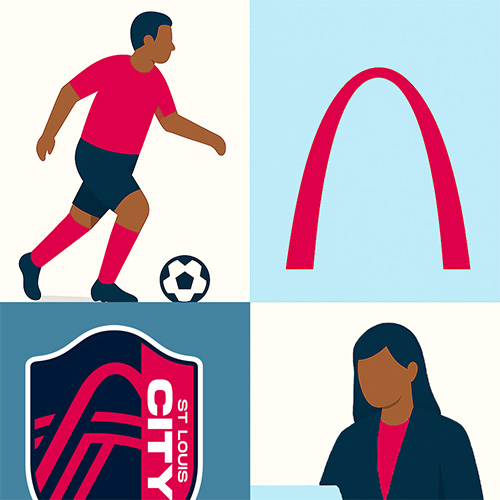
From Side Hustle to Entrepreneurship
Uber, DoorDash, Rover — gig work like these services offer has reshaped the United States economy in recent years. What is often missed in this trend is how participating in the gig economy increases the likelihood of becoming an entrepreneur, especially among lower-income and younger individuals.
Gig work acts as a stepping stone by providing industry experience, leading to larger but riskier new businesses with higher performance potential. Margarita Tsoutsoura and a team of colleagues explored how participation in the gig economy influences entrepreneurial activity through analysis of U.S. tax returns between 2012–2021.
How Gig Work is Reshaping the Entrepreneurial Landscape
Whether ridesharing or dog-walking, the gig economy is opening doors to ownership for younger, lower-income groups. Our findings indicate:
- Gig workers are more likely to become entrepreneurs.
- Gig work is being used as on-the-job training.
- Gig-founded firms are larger — and riskier.
Gig workers are more likely to become entrepreneurs
In fact, those earning income from gig work are 1% more likely to start a new firm than those who don't. This is especially true for lower-income individuals who are younger and value flexibility. Think single parents or caregivers — gig opportunities allow them freedom to choose their own hours, and owning your own business offers the same benefits (with the added potential of increased profit).
Gig work as on-the-job training
Gig work offers a low-risk setting to learn business and industry skills. Many gig workers start their own business in industries similar to their gig work. For example, a rideshare driver is likely to start a transportation business of their own.
Gig-founded firms are larger but riskier
Firms birthed from prior gig experience typically start with higher revenue and more employees. However, these startups are also more like to fail, facing a ~3% lower survival rate than traditional firms. It's not all bad news, though. Firms that survive tend to be more profitable over time and hire more people, especially independent contractors.
Gig-founded firms are also more likely to take on debt, a sign that gig work may ease capital constraints that other entrepreneurs might face.
Looking Ahead at the Gig-to-Entrepreneurship Pipeline
Our research concludes that gig work isn't just a side hustle anymore. It's reshaping the pathway to entrepreneurship, especially for marginalized groups. Younger individuals without business backgrounds are able to learn and grow in low-risk, flexible environments, allowing them to easily transition to ownership.
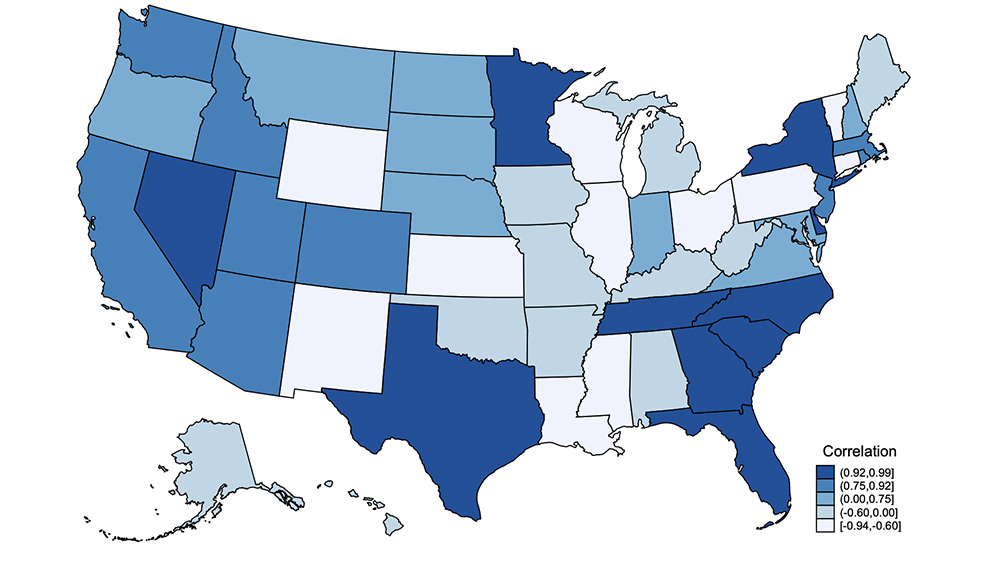
But what does this mean for the future? Encouraging or supporting gig work may indirectly support new business creation. The future of entrepreneurship may no longer be shaped in boardrooms, but in the everyday work of rideshare drivers, freelance designers, and online sellers. As gig platforms continue to expand, they may serve as unlikely but powerful incubators for the next wave of business owners.
Who Responds in the Gig Economy
These mechanisms provide the coefficients and 95% confidence intervals for subsamples based on founders’ characteristics.
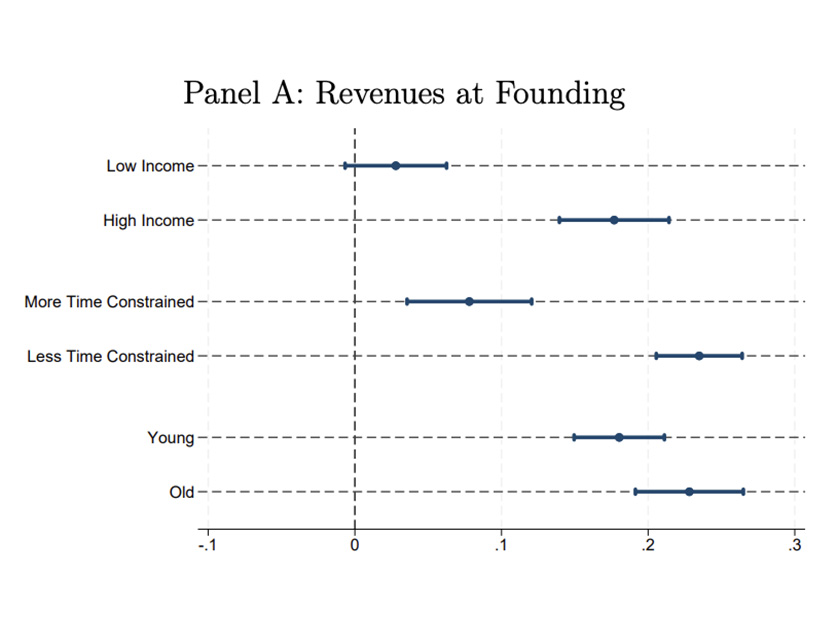
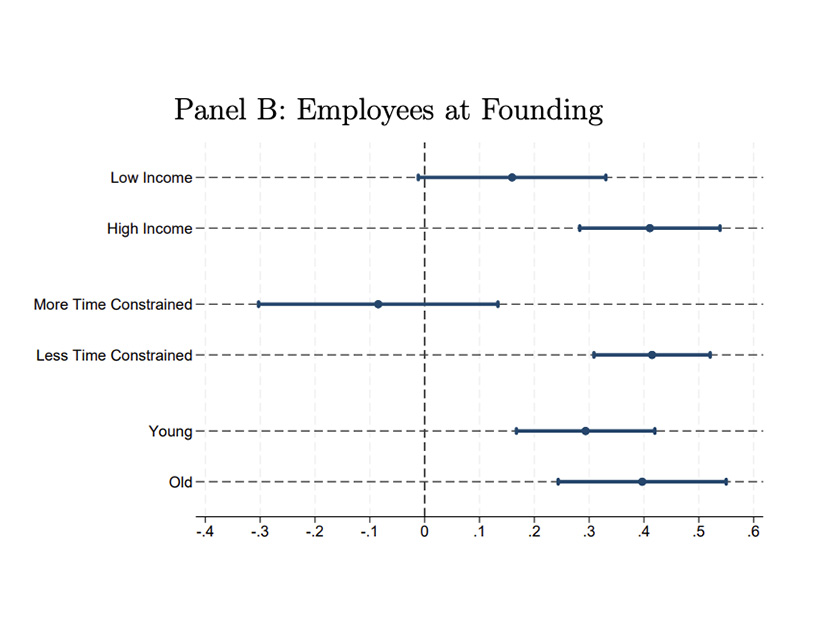
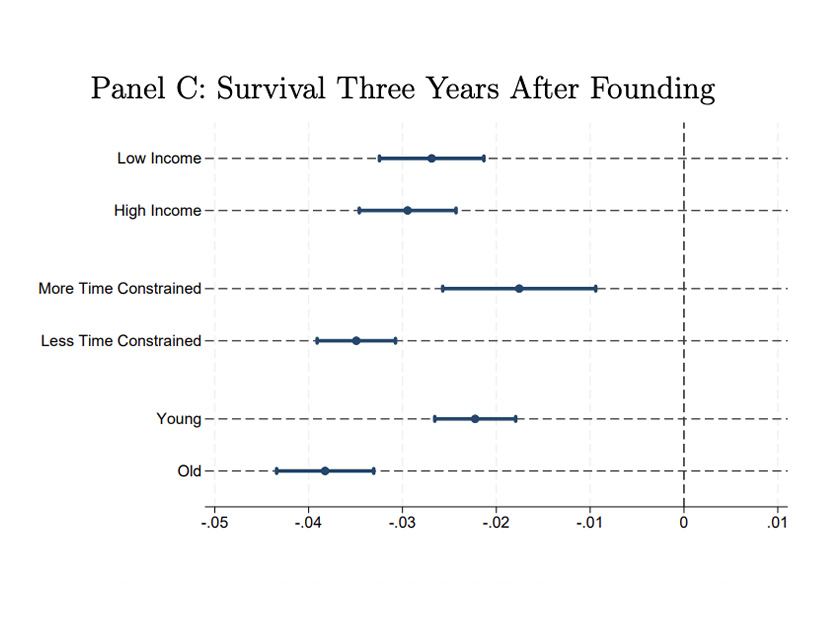
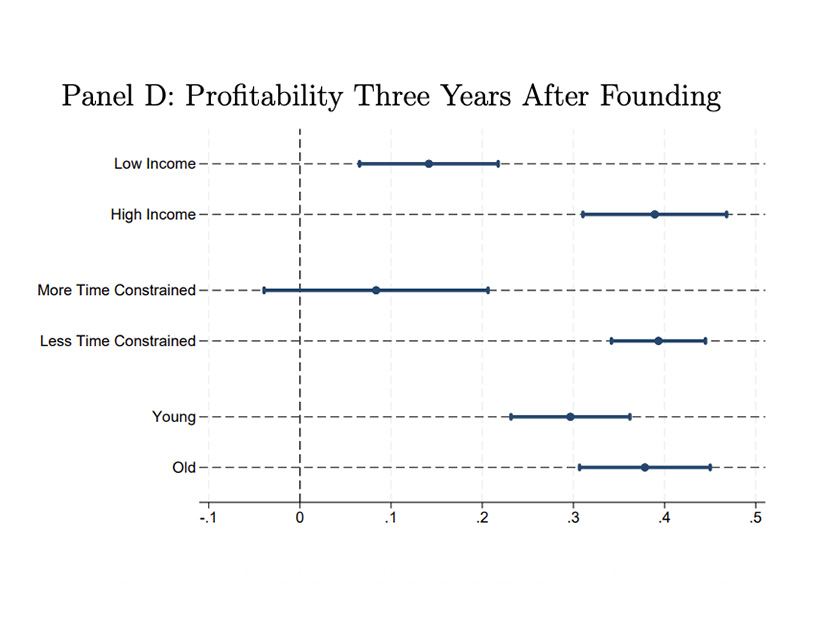
More About This Project
- Project results and materials
-
Research team/faculty conveners
- Margarita Tsoutsoura, Olin associate professor of finance
- Matthew R. Denes, assistant professor of finance, Tepper School of Business, Carnegie Mellon University
- Spyridon Lagaras, assistant professor of finance, Gies College of Business, University of Illinois